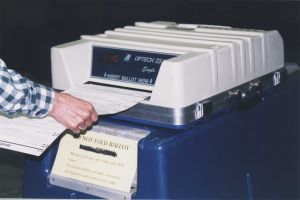Login to your Account
The British Electoral Roll - At a Glance

The Electoral roll or register is an important and significant tool used to vote in presiding elections. The Electoral Roll contains the names of people registered to cast a vote for any particular area or region in the UK. It is an indispensable way of contacting and recording eligible voters around the UK, to ensure people utilise their right to vote for government. Electoral registers are used frequently in democratic countries like the United Kingdom, Australia and New Zealand. The Electoral Roll in the United Kingdom is available to all people over the age of 18 years. Each household provides a list of eligible voters to the electoral registration authority.
Registrations take place at the electoral office located at your local council. The local council is responsible for collecting and recording the names of people who are eligible for voting. The council is responsible for the job of electoral roll registrations even though these offices might be separate from the local council offices itself.
The history of the electoral roll dates back to 1832, when the registration processes as we know them today, began. Before 1832 the electoral registrations were only for Scottish counties. Earlier land tax lists were used as substitutes for the register, from Medieval times, while registrations requiring a voting age started in 1832. The electoral roll defined a voting age of 21years in the parliamentary act of 1918. Later, the age for voting was changed to 18 years of age.
Nowadays, you can search the Electoral Roll for any number of reasons from the comfort of your own home, using websites that provide fee based, online searches. These searches return instant results. There are many solutions for online searches on the web like using Facebook or simply typing the person you are searching for into Google. An even more effective way to reach out to voters in the electoral register is by using searches on the UK Electoral Roll. The search options provided include different categories such as births, deaths and property and address searches. More elaborate searches can be performed for relatives and/or missing people as well.
To find out whether a person is eligible to vote and/or whether he/she is on the roll, one would need to contact the electoral registration office for your given area of residence. Once you have registered on the electoral roll, voting is simple. A voting card is sent to each registered person prior to any election. This card reminds the voter of the details submitted at the electoral office and tells them when and where they can vote. It is necessary for the individual to have a fixed address in order to vote. If you move, you are required to register for the local electoral roll within your new constituency.
The electoral roll that was prepared by the electoral registration office was edited throughly in 2003 and a number of complications that were encountered were due to the lack of availability of data for a few months. The changes to the electoral roll were significant, as well as providing several methods by which the search was made even better. Included in the revisions made to the electoral register was a fee based search.
There are now two types of electoral register in the UK:
The first one is a complete version and the use of this electoral register is limited by law to authorities, political parties and other professional ranks of people. It is extremely comprehensive.The other format of the electoral register is available to anyone for the purpose of searching. This electoral register search is used by many websites and online searches for voters and by voters, and usually provides enough of a detailed search to satisfy the searchers information needs. The UK Electoral Roll is the most compatitive and reliable online search service. We provide instant People Searches, Death Searches, Marriage Searches and UK Property Ownership to the general public using the electoral register, please Click here for more information

